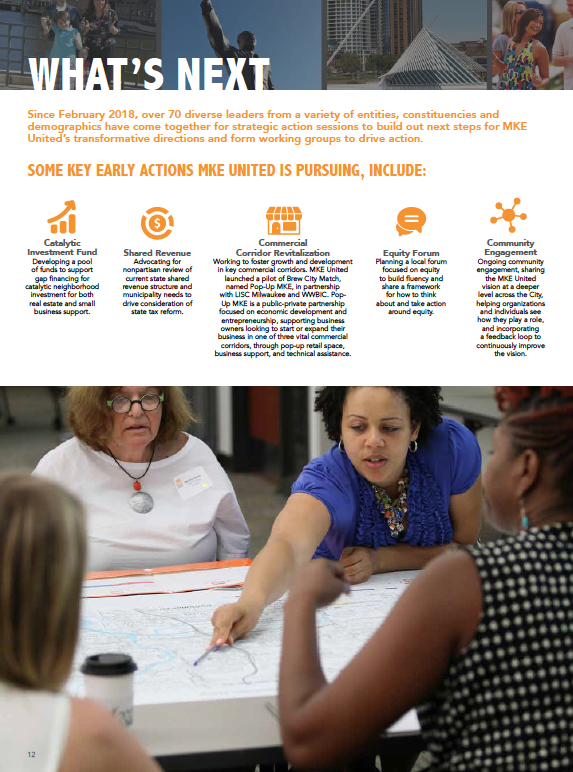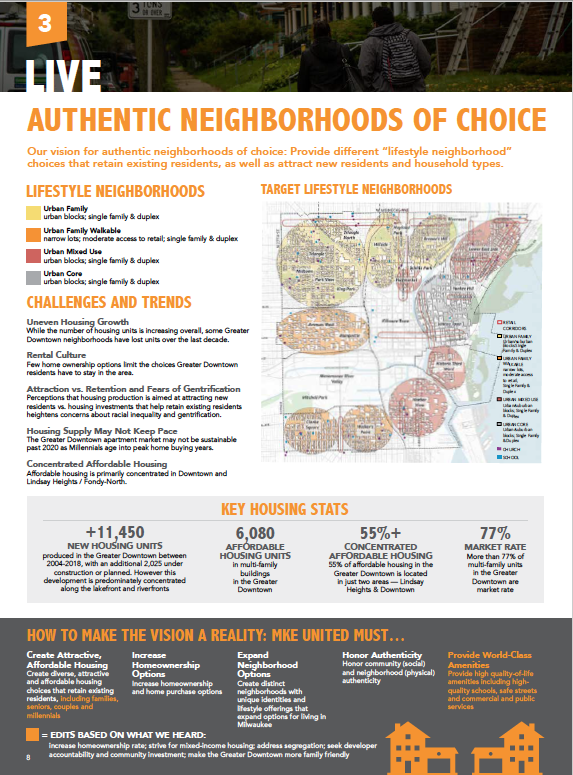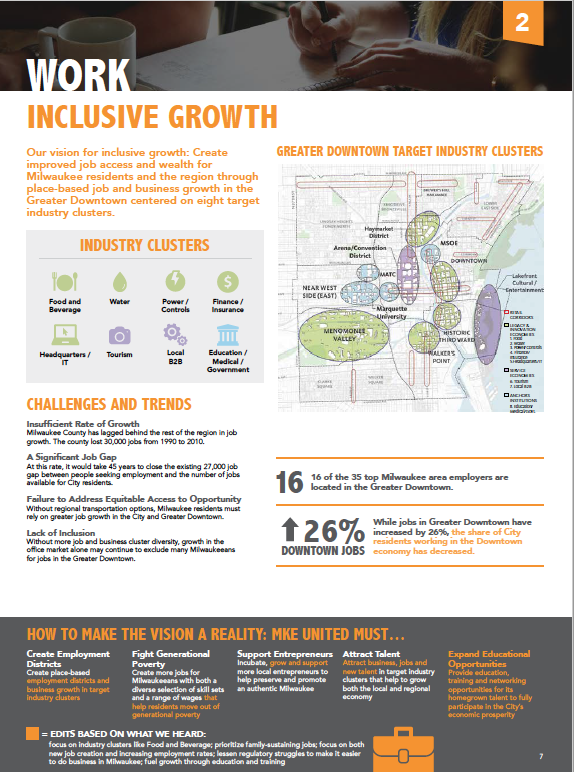MKE United Greater Downtown Action Agenda
There is often skepticism about planning processes, as people fear the end result will only be a plan that “sits on the shelf.” The MKE United Greater Downtown Action Agenda is a “living” implementation playbook, usable by all, with actionable strategies to be executed over the next 10 years. The Agenda includes specific assignments that government, business, community, philanthropic and institutional sectors can reasonably commit to accomplish. urbanAC led a team of four consultants firms, together with a multi-sector stakeholder group including the Mayor, the Greater Milwaukee Committee, and local philanthropy, to have the 10-year collaborative vision and identify early actions.
MKE United’s Action Agenda focuses on “Greater Downtown”, comprised of downtown Milwaukee and the neighborhoods immediately adjacent. Specific outcomes of the MKE United’s Action Agenda include
Building better economic, transportation and cultural connections within and across the greater downtown area
Prioritizing inclusive development opportunities to grow and strengthen businesses and jobs in the downtown and adjacent neighborhoods for Milwaukeeans and new talent
Creating a stronger downtown and neighborhood identity that highlights the historic, cultural, entertainment and public spaces that make Milwaukee’s Greater Downtown distinct, authentic, and attractive to residents, workers and visitors
Increasing the density of housing, jobs and entertainment and cultural amenities that provide more options for all Milwaukeeans and visitors to enjoy the greater downtown
Identifying the necessary priorities, actions, resources and tools required for implementation and realistic timeframes for execution Creating new capacities for building relationships, networks, partnerships and accountabilities for implementation
Building enthusiasm and a welcoming environment for all the neighborhoods of downtown for Milwaukeeans as well as regional and global visitors
Essential to the planning process was a civic engagement strategy that included focus groups and informal “happy-hour” discussion groups, involving a broad set of residents, business, faith and community-based organizations, government, nonprofits, philanthropy, and institutions — known as civic sectors — engaged and convened at the same table in a multi-faceted dialogue to discuss, debate, resolve and act collectively. These tactics were unique to the way the civic community of Milwaukee needed to establish productive engagement, particularly for groups that rarely spent time together, but shared common interests. The process also provides several opportunities for the Milwaukee community to come together to help shape the vision, priorities and strategies for the Action Agenda through an open house, digital surveys and a project website.



